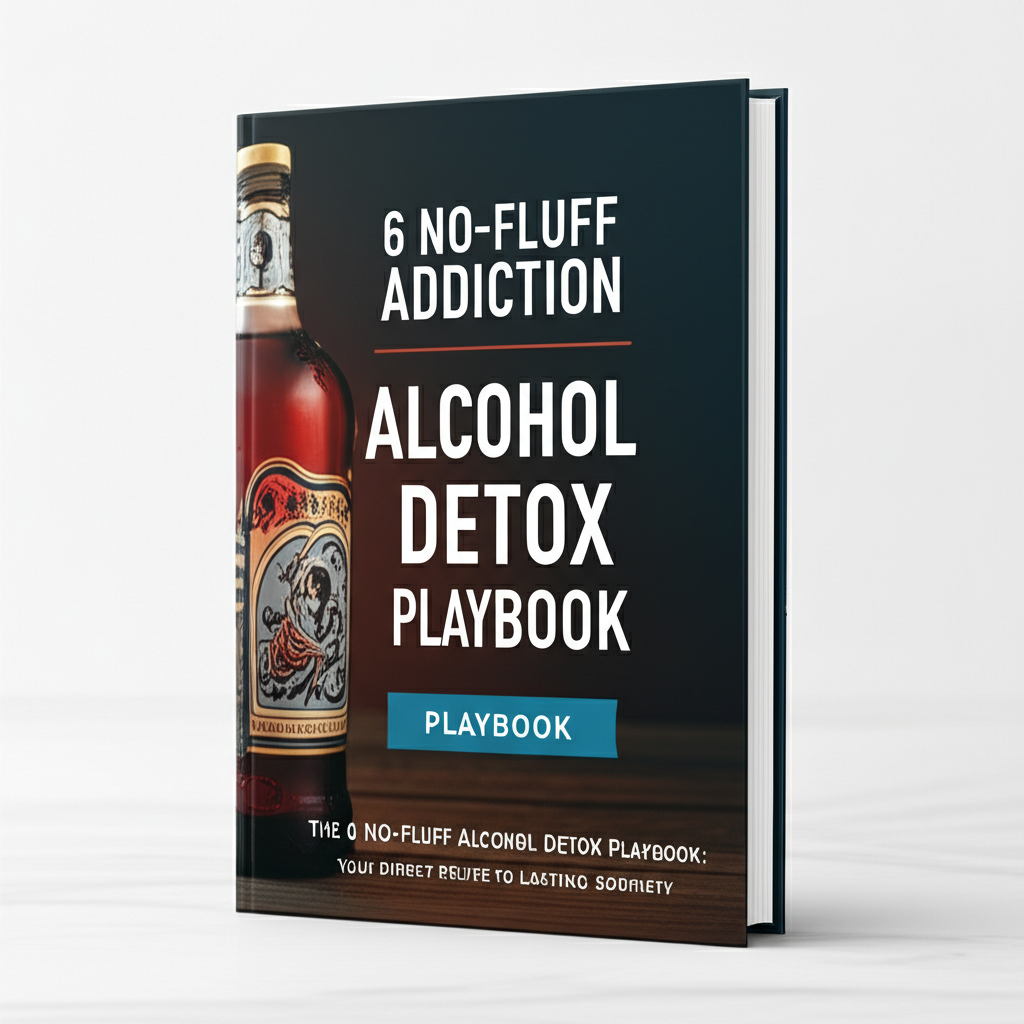The bottle whispers promises – comfort, escape, a temporary balm for the soul. But for millions, that whisper can morph into a roar, trapping them in the powerful grip of alcohol addiction. Breaking free from this grip is one of the bravest and most life-altering decisions a person can make. However, the path to sobriety often begins with a critical, and potentially dangerous, first step: alcohol detox.
Many people underestimate the physical and psychological toll of alcohol withdrawal. It’s not simply a matter of willpower; it’s a complex physiological process that, if unmanaged, can lead to severe health complications, including seizures, delirium tremens, and even death. This is why professional, medically supervised detox is not just recommended, but often essential for safety and long-term success.
This comprehensive guide will demystify the process, offering a clear, compassionate, and factual look at three professional approaches to alcohol detox. We’ll explore the nuances of each, helping you understand what to expect, who benefits most, and how to embark on this courageous journey toward a healthier, alcohol-free life. Your recovery starts here, with informed choices and professional support.
Understanding Alcohol Withdrawal: The Unavoidable First Step
Before diving into the professional detox options, it’s crucial to understand why medical supervision is so vital. Chronic alcohol consumption profoundly alters brain chemistry. When alcohol is suddenly removed, the body, accustomed to its presence, goes into overdrive, leading to a cascade of often uncomfortable and sometimes life-threatening symptoms.
The Dangers of "Cold Turkey" Detox
Attempting to detox from alcohol at home without medical guidance is known as "cold turkey" detox. While it might seem like the quickest or most private route, it carries significant risks, especially for individuals with moderate to severe alcohol dependence. The body’s rebound from alcohol suppression can be unpredictable and dangerous.
- Increased Risk of Seizures: Alcohol suppresses excitatory neurotransmitters in the brain. When alcohol is removed, these neurotransmitters rebound excessively, leading to potential seizures.
- Delirium Tremens (DTs): A severe form of withdrawal, DTs can manifest as extreme confusion, disorientation, hallucinations (visual, auditory, or tactile), rapid heart rate, high blood pressure, and profuse sweating. DTs are a medical emergency and can be fatal if untreated.
- Dehydration and Electrolyte Imbalance: Vomiting, diarrhea, and sweating can lead to severe dehydration and critical electrolyte imbalances, further stressing the body.
- Psychological Distress: Intense anxiety, panic attacks, depression, and suicidal ideation are common during unassisted withdrawal, making it incredibly difficult to cope.
Common Alcohol Withdrawal Symptoms
Symptoms typically begin within 6-24 hours after the last drink, peak around 24-72 hours, and can last for several days or even weeks in some cases. The severity depends on the individual’s drinking history, overall health, and genetic factors.
Early Symptoms (6-12 hours):
- Headaches
- Nausea and vomiting
- Tremors (shaking hands)
- Sweating
- Anxiety and agitation
- Mild insomnia
Intermediate Symptoms (12-48 hours):
- Increased blood pressure and heart rate
- More intense tremors
- Increased body temperature
- Seizures (can occur within this window)
- Hallucinations (auditory, visual, tactile – often transient and not full DTs)
Severe Symptoms (48-72+ hours):
- Delirium Tremens (DTs)
- Severe disorientation and confusion
- Profound agitation
- High fever
- Severe hallucinations and delusions
- Cardiovascular collapse
Given these potential dangers, the wisdom of seeking professional help for detox becomes undeniable. Let’s explore the three primary professional pathways designed for safety and efficacy.
Guide 1: Medically Supervised Inpatient Detox – The Safest Harbor
For many, especially those with severe alcohol dependence, a history of withdrawal complications, or co-occurring mental health disorders, inpatient medical detox is the gold standard. It offers the highest level of care and supervision, providing a safe, structured environment away from triggers and temptations.
What is Inpatient Detox?
Inpatient detox takes place in a dedicated medical facility, often within a hospital setting or a specialized residential treatment center. Patients reside at the facility 24/7, receiving constant medical monitoring and support from a team of doctors, nurses, and addiction specialists.
Who Benefits Most from Inpatient Detox?
- Severe Alcohol Dependence: Individuals who drink heavily and consistently, especially those with a long history of alcohol abuse.
- History of Severe Withdrawal Symptoms: If you’ve previously experienced seizures, DTs, or other life-threatening symptoms during withdrawal.
- Co-occurring Mental Health Conditions: People struggling with anxiety, depression, bipolar disorder, or other mental health issues alongside their alcohol addiction, as these can complicate withdrawal.
- Lack of a Stable, Sober Home Environment: If your home environment is not conducive to sobriety or lacks a strong support system.
- Multiple Failed Detox Attempts: If previous attempts at detox have been unsuccessful or dangerous.
The Process and Benefits
- Comprehensive Assessment: Upon admission, a medical team conducts a thorough physical and psychological evaluation to understand your specific needs, medical history, and severity of dependence.
- Medical Stabilization: This is the core of inpatient detox. Medications, primarily benzodiazepines (e.g., Valium, Ativan, Librium), are administered to manage withdrawal symptoms, prevent seizures, and reduce anxiety. Dosing is carefully tapered down over several days to weeks.
- 24/7 Monitoring: Nurses and medical staff continuously monitor vital signs (heart rate, blood pressure, temperature), administer medications, and respond immediately to any emerging complications.
- Nutritional Support: Many individuals entering detox are malnourished. Inpatient facilities provide balanced meals and nutritional supplements to aid recovery.
- Therapeutic Interventions (Early Stages): While the primary focus is medical stabilization, some facilities may begin introducing individual or group therapy sessions once a patient is stable enough.
- Seamless Transition to Further Treatment: A significant advantage of inpatient detox is the ease of transitioning into a longer-term residential rehabilitation program, as many detox centers are co-located or affiliated with such programs. This continuity of care is crucial for sustained recovery.
Benefits:
- Maximum Safety: The highest level of medical supervision and immediate intervention for complications.
- Comfort Management: Medications significantly reduce the severity of withdrawal symptoms, making the process more tolerable.
- Structured Environment: Removes the individual from triggers and temptations, allowing them to focus solely on healing.
- Expert Care: Access to a multidisciplinary team of addiction specialists.
Guide 2: Outpatient Medical Detox Programs – Flexibility with Supervision
For individuals with less severe alcohol dependence and a stable, supportive home environment, outpatient medical detox can be a viable and effective option. It offers medical supervision and medication management while allowing the individual to continue living at home and fulfilling some daily responsibilities.
What is Outpatient Detox?
Outpatient detox involves daily or near-daily visits to a clinic or doctor’s office for medical check-ups, medication administration or pick-up, and monitoring of withdrawal symptoms. The patient returns home each night.
Who is a Good Candidate for Outpatient Detox?
- Moderate Alcohol Dependence: Individuals who drink regularly but have not experienced severe withdrawal symptoms (like seizures or DTs) in the past.
- Stable and Supportive Home Environment: A safe, alcohol-free home with reliable family or friends who can provide support and monitor the individual.
- Good Physical Health: No severe co-occurring medical conditions that would complicate withdrawal.
- Strong Motivation: The individual must be highly motivated and committed to following the program’s guidelines and attending all appointments.
- Reliable Transportation: Ability to consistently travel to and from the clinic.
How It Works and Its Advantages
- Initial Assessment: Similar to inpatient, a thorough medical and psychological evaluation determines suitability for outpatient care.
- Medication Management: The prescribing physician provides medications (often benzodiazepines) to alleviate withdrawal symptoms. The dosage and schedule are carefully monitored and adjusted during daily check-ins.
- Daily Monitoring: During clinic visits, medical staff monitor vital signs, assess symptoms, and provide support. This ensures that the detox is progressing safely and that medications are effective.
- Counseling and Support: Outpatient programs often integrate individual counseling, group therapy, and educational sessions to address the psychological aspects of addiction and prepare for long-term recovery.
Advantages:
- Flexibility: Allows individuals to maintain work, family, or educational commitments.
- Cost-Effective: Generally less expensive than inpatient detox.
- Comfort of Home: Allows individuals to detox in their familiar home environment.
- Early Integration of Therapy: Often incorporates therapeutic elements from the outset, fostering early engagement in recovery principles.
Potential Drawbacks
- Less Intensive Supervision: While medical staff monitor progress, they are not present 24/7, which means complications might not be identified as quickly as in an inpatient setting.
- Higher Risk of Relapse: The proximity to triggers and the availability of alcohol in the home environment can pose a greater challenge for some individuals.
- Requires Strong Self-Discipline: Success heavily relies on the individual’s commitment to following the program and avoiding alcohol.
- Limited for Severe Cases: Not suitable for those with a history of severe withdrawal or significant co-occurring issues.
Guide 3: The Indispensable Role of Professional Support and Aftercare – Sustaining Sobriety
While inpatient and outpatient detox programs focus on safely navigating the physical withdrawal from alcohol, true recovery is a marathon, not a sprint. The third, often overlooked, but absolutely critical "pro" aspect of addiction treatment is the comprehensive support and aftercare plan. This is where the foundation for long-term sobriety is built.
Why Aftercare is Non-Negotiable
Detox is just the beginning. The brain and body need time to heal, and individuals need to develop new coping mechanisms, address underlying issues, and build a supportive sober network. Without a robust aftercare plan, the risk of relapse dramatically increases. Aftercare provides:
- Continued Healing: Addresses the psychological and emotional roots of addiction.
- Skill Building: Teaches coping strategies, relapse prevention techniques, and healthy lifestyle choices.
- Community and Connection: Fosters a sense of belonging and reduces feelings of isolation.
- Accountability: Provides ongoing support and monitoring to stay on track.
Key Components of Effective Aftercare
An effective aftercare plan is individualized and multi-faceted, often combining several elements:
-
Individual Therapy/Counseling:
- Cognitive Behavioral Therapy (CBT): Helps identify and change negative thought patterns and behaviors that contribute to alcohol use.
- Dialectical Behavior Therapy (DBT): Focuses on emotional regulation, distress tolerance, and interpersonal effectiveness.
- Motivational Interviewing: Helps individuals explore and resolve ambivalence about recovery, strengthening their motivation for change.
- Trauma-Informed Therapy: Addresses any underlying trauma that may contribute to addiction.
-
Group Therapy:
- Provides a safe space to share experiences, gain perspective from peers, and practice new social skills.
- Reduces feelings of isolation and shame, fostering a sense of community.
- Led by experienced therapists who guide discussions and facilitate healing.
-
Support Groups (e.g., AA, NA, SMART Recovery):
- Alcoholics Anonymous (AA): A 12-step program offering peer support and spiritual guidance.
- Narcotics Anonymous (NA): Similar to AA, but for all substance addictions.
- SMART Recovery: A science-based program that teaches self-empowerment and self-reliance using cognitive behavioral and rational emotive behavior therapy principles.
- These groups offer ongoing, free support, mentorship (sponsorship), and a network of individuals committed to sobriety.
-
Relapse Prevention Planning:
- Identifying personal triggers (people, places, emotions).
- Developing concrete strategies to avoid or cope with triggers.
- Creating an emergency plan for high-risk situations.
- Learning how to manage cravings and setbacks.
-
Sober Living Environments:
- Transitional housing options that provide a structured, alcohol-free living environment.
- Often have rules regarding curfews, chores, and participation in recovery activities.
- Offers a safe stepping stone between inpatient treatment and fully independent living.
-
Holistic Therapies:
- Yoga, meditation, mindfulness, art therapy, music therapy, and exercise programs can help manage stress, improve emotional well-being, and foster a healthier lifestyle.
The transition from active addiction to lasting recovery is a marathon, not a sprint. Professional aftercare ensures you have the tools, support, and guidance to navigate the challenges and celebrate the victories along the way.
Preparing for Detox: What You Need to Know
Deciding to detox is a monumental step. Preparing for it, both practically and emotionally, can ease the process.
The First Steps
- Consult a Healthcare Professional: This is paramount. Talk to your primary care physician, an addiction specialist, or a mental health professional. Be completely honest about your drinking habits and health history. They can help assess your level of dependence and recommend the most appropriate detox setting.
- Research Facilities: Look for accredited detox centers or outpatient programs. Check their reviews, services offered, and staff qualifications.
- Understand Your Insurance Coverage: Contact your insurance provider to understand what detox and treatment services are covered. Many facilities also offer financial assistance or payment plans.
Practical Considerations
- Inform a Trusted Person: Let a close family member or friend know your plans so they can provide support and assistance.
- Arrange Time Off: Whether for inpatient or outpatient, you will need to dedicate time to the detox process. Arrange for time off work or other responsibilities.
- Pack Essentials (for Inpatient): Comfortable clothing, toiletries, books, journals, and any personal items that bring comfort. Leave valuables at home.
- Childcare/Pet Care: Make arrangements for dependents if necessary.
- Remove Alcohol from Home (for Outpatient): If opting for outpatient detox, ensure your home is completely free of alcohol and any related paraphernalia.
Choosing Your Path: Factors to Consider
Deciding between inpatient and outpatient detox, and what kind of aftercare, is a deeply personal choice. Here are key factors to weigh:
- Severity of Dependence: How much and how often do you drink? Have you experienced severe withdrawal before?
- Physical and Mental Health: Do you have underlying health conditions or mental health disorders?
- Home Environment: Is your home stable, sober, and supportive? Are there triggers present?
- Support System: Do you have reliable friends or family who can offer support and accountability?
- Financial Resources: What does your insurance cover? What are your out-of-pocket costs?
- Personal Responsibilities: Can you take time away from work or family, or do you need a more flexible option?
- Location: Are there suitable facilities accessible to you?
- Previous Treatment History: What has worked or not worked for you in the past?
Ultimately, the best choice is the one that prioritizes your safety, comfort, and long-term recovery. Don’t hesitate to seek multiple professional opinions to make an informed decision.
Conclusion: Your Journey to Freedom Begins
Embarking on alcohol detox is a profound act of self-love and courage. It’s the essential first step on a journey toward reclaiming your health, your relationships, and your future. As we’ve explored, attempting to navigate the complexities and dangers of alcohol withdrawal alone is a perilous gamble. Professional guidance is not a luxury; it is a necessity.
Whether through the comprehensive safety net of medically supervised inpatient detox, the flexible yet monitored approach of outpatient medical detox programs, or the indispensable long-term strategy of professional support and aftercare, there is a proven path to sobriety. Each option offers unique advantages, designed to meet varying levels of need and individual circumstances.
Remember, addiction thrives in isolation. Reaching out for help is a sign of strength, not weakness. By choosing a professional, guided detox, you’re not just quitting drinking; you’re building a foundation for a healthier, happier, and more fulfilling life. Take that brave first step, trust in the process, and know that a brighter, alcohol-free tomorrow is within your reach. Your recovery is worth it.








